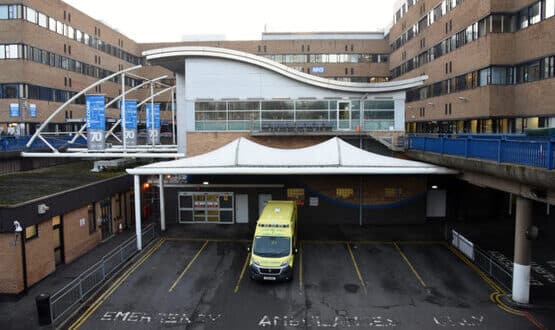New Nottingham CDIO on familiar territory bridging digital maturity gap
- 7 June 2023

One of the biggest challenges facing the NHS is lifting up the least digitally mature hospital trusts, especially the two to three dozen still lacking a full electronic patient record (EPR) system. Andy Callow already has experience overseeing the journey of one such trust, and is currently getting to grips with another.
Callow became the chief digital information officer (CDIO) of Nottingham University Hospitals NHS Trust (NUH) in January and told Digital Health he expects to enter the national business case approval process for an EPR provider in the next month.
“We’re still in the process of going through the frontline digitalisation full business case approval,” said Callow, a former Group CDIO at Kettering General Hospital NHS Foundation Trust and Northampton General Hospital NHS Trust.
“We’ve got contracts in place with Nervecentre and other providers, and we anticipate that by the end of this financial year – hopefully in Autumn – we’ll have an understanding of what our funding is.”
The government have reiterated that fully featured electronic patient records must be rolled out to 90% of trusts by December 2023 and to 100% of trusts by March 2025 so NHS staff can access all relevant patient information quickly.
NUH successfully launched its electronic prescribing and medicines administration (EPMA) system on the Nervecentre system across its City Hospital campus on the weekend of May 13-14, with 62,000 prescriptions processed within the first week and 39,000 patient identification wrist bands issued during the same period, Callow said.
He added: “We managed to do the transcribing of all drug charts over the course of the weekend into Monday.”
The EPMA is expected to go live at the Queen’s Medical Centre (QMC), the trust’s other hospital, on June 10-11 as scheduled, despite the junior doctors’ strike scheduled for that week.
Consolidation of clinical systems
NUH has an even more fragmented digital structure than that in Kettering and Northampton, Callow said, noting that there are 414 different clinical systems in use in Nottingham, compared with around 300 in Kettering and Northampton.
“This manifests itself in the daily frustration of people who need five different clinical applications up at a given time during clinics,” he said. “At NUH, we are trying to work toward consolidating as many of those systems as possible.”
As part of that process, Callow said he is in the process of running workshops for staff in order to develop a digital strategy paper during the year that he can present to the Trust board in December.
At Kettering and Northampton General, a similar process led to an aim for a 30% reduction in the number of clinical systems in use, although some digital systems are used only by specific clinical specialties.
The approach involves defining the strategic intent of each currently operating system and determining whether it gets consolidated into a new system, as well as deciding which individual systems should link to core patient records and which will be imported into the trust data warehouse.
When it comes to work on data warehouses, the health service’s proposed federated data platform (FDP) has the potential to play a role in the calculations of trusts playing catch up in terms of digital maturity, especially given the severe financial constraints under which all trusts find themselves.
“FDP is really interesting, but it is not without its controversy,” Callow said. “We are trying to understand what functionality it will deliver and if there is an opportunity to save money since it is funded nationally.”
Kettering and Northampton are currently doing major work on their data warehouse, he noted, and it is still unclear whether trusts will need to continue to do this kind of work themselves or look to the FDP to do it.




